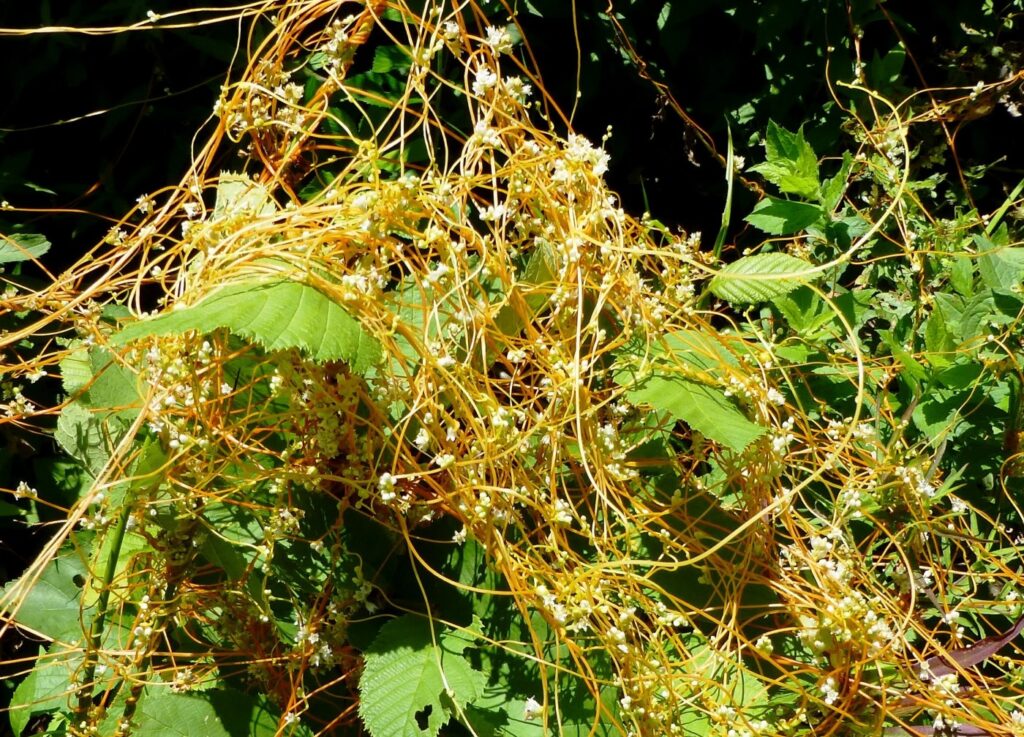
URGENT UPDATE: New reports confirm that the stringy parasitic plant, Dodder (Cuscuta pentagona), is actively targeting gardens and wild areas in Connecticut. This unusual member of the morning glory family, known for its ability to “sniff out” potential host plants, is gaining attention as it grows rapidly from mid-July through August.
Dodder is a formidable threat to certain plants, as it lacks chlorophyll and must rely on nutrients from its hosts. Instead, it develops yellow to orange twining stems that can form dense mats over vulnerable plants. Authorities are stressing the urgency of identifying dodder early, as it has only a few days post-germination to find a suitable host or it will die.
Experts from the UConn Home & Garden Education Center report that dodder can survive in soil for over 20 years, making its eradication a long-term challenge. The plant’s small white flowers bloom in clusters from late July through August, making it easier to spot during these months.
Dodder primarily targets plants like jewelweed and tomatoes, exploiting them through specialized tubes called haustoria that penetrate the host’s vascular system. This parasitic relationship can severely weaken the host but does not always result in death.
The impact of dodder’s aggressive growth can be significant for local gardeners and farmers. If not monitored, dodder may spread rapidly, particularly in damp fields and along stream and pond banks. Experts recommend proactive measures, such as early scouting in July, to identify and remove dodder before it sets seeds.
KEY TAKEAWAY: Those in affected areas should be vigilant. If dodder is found, experts advise removing both the dodder and the host plant to prevent further spread, especially before seed production occurs. Some gardeners have resorted to burning dodder-infested areas to manage this persistent plant.
As dodder continues to thrive in Connecticut, residents are urged to stay informed and take action to protect their gardens. For more information and resources on managing dodder and other garden pests, contact the UConn Home & Garden Education Center at (877) 486-6271 or visit their website.
Stay tuned for more updates as this situation develops. The survival of local gardens may depend on immediate action against this invasive threat.





